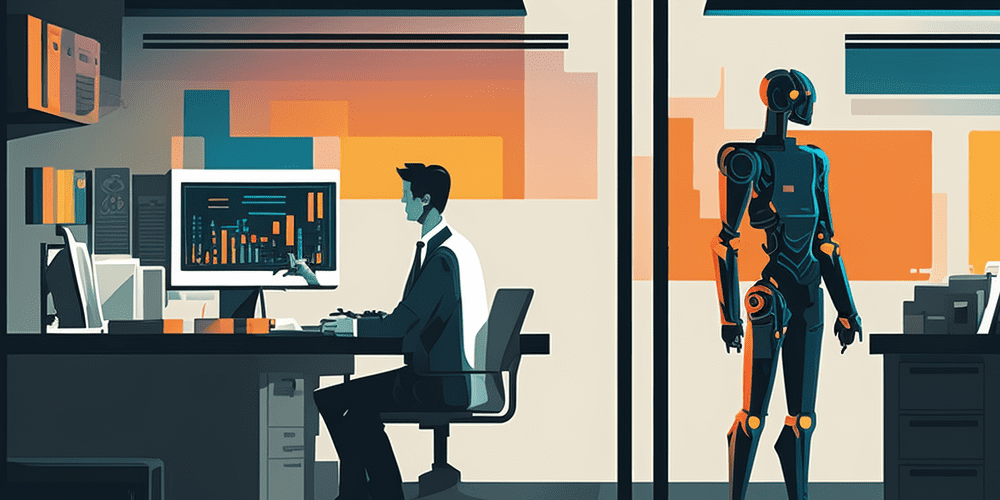
Generative AI has become a hot topic in recent months, sparking concerns that it may replace jobs and lead to unemployment. However, Milind Lakkad, the CHRO of TCS, the largest IT services firm in India, believes that generative AI will not replace jobs but will be a co-worker. In an interview with PTI, Lakkad explained that generative AI will take time to understand the context of the customer and will change job definitions, but not lead to job losses.
Generative AI, also known as creative AI, refers to the use of algorithms and machine learning models to create new content, such as images, music, and text. ChatGPT, a large language model trained by OpenAI, is an excellent example of generative AI's capabilities. ChatGPT can generate human-like responses to questions and conversations by analyzing vast amounts of data and understanding patterns and context.
The emergence of platforms like ChatGPT has sparked concerns over the need for human expertise in delivering work offered by technology companies. However, Lakkad believes that understanding the context in which a customer operates is crucial, and continuously evolving to differentiate from the competition is essential. The use of generative AI platforms in various industries will result in varying degrees of human involvement.
While generative AI may reduce the need for tedious jobs with repetitive tasks, there will still be a demand for workers across the hierarchy as they develop crucial contextual skills. Lakkad believes that generative AI will facilitate collaboration rather than replacement, and will not change business models. These tools will improve productivity, work consistency, and reduce the need for governance while accelerating delivery and minimizing peripheral functions.
TCS has already implemented these tools in some areas, with more implementation expected in the future. Lakkad anticipates changes in training to occur as a result, and TCS is already preparing for future requirements in this regard. The full scope of generative AI's impact will become clearer in two years' time.
While there have been significant layoffs in tech firms globally, TCS has confirmed that the company is not planning any layoffs. Generative AI may change job definitions, but it will not replace jobs. Instead, generative AI will be a co-worker, facilitating collaboration and improving productivity, consistency, and delivery speed. As generative AI continues to evolve, it will be interesting to see how it will shape the future of work in various industries.
At Professional Saathi, we offer a range of business consultancy services that help businesses improve their performance, achieve growth, and overcome challenges.
Copyright 2026 © Created By KTPG PROFESSIONAL SAATHI CORPORATE CONSULTANT PRIVATE LIMITED, All Rights Reserved.
Leave Your Comment